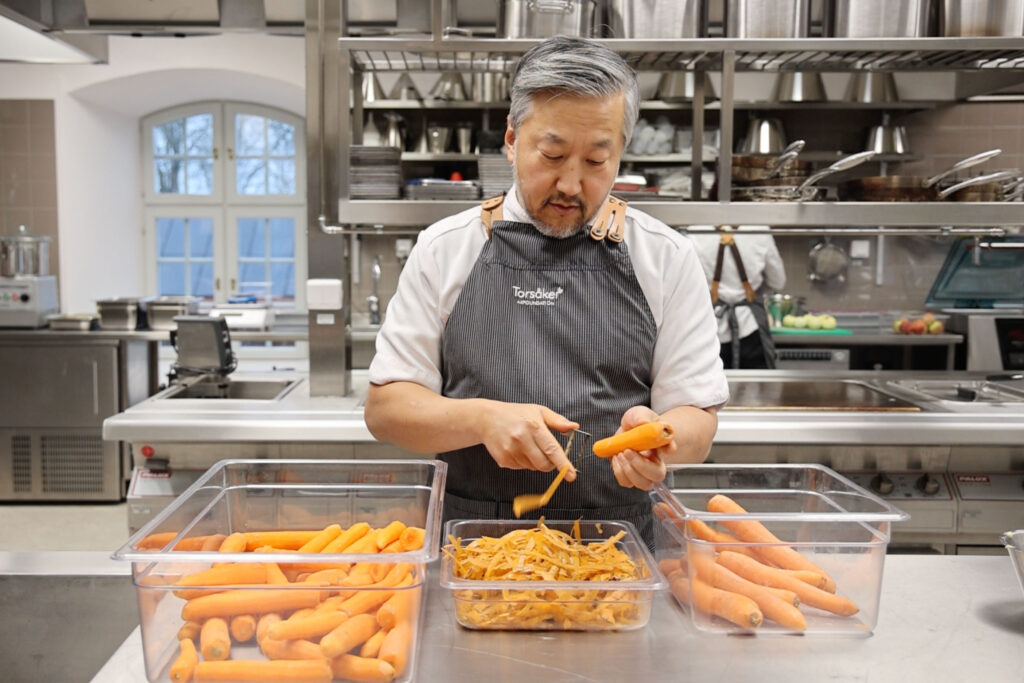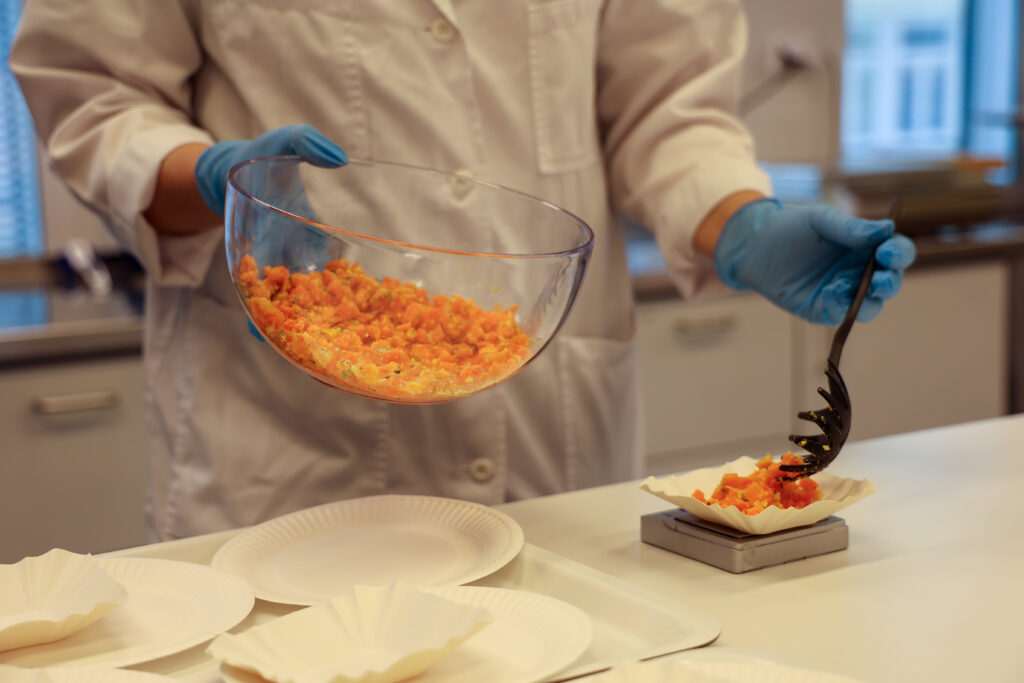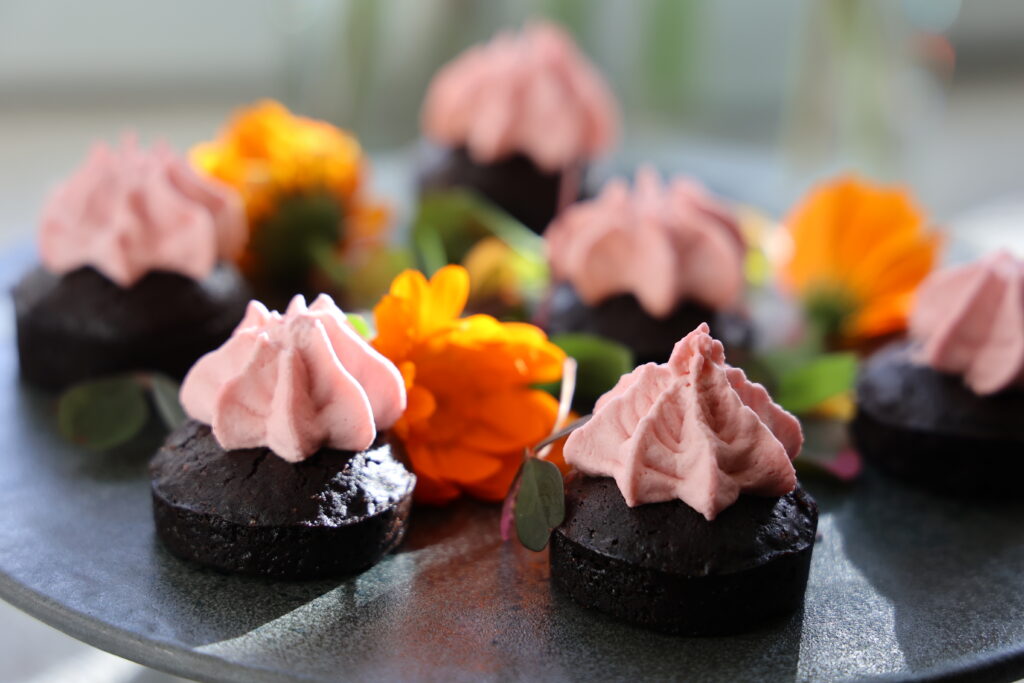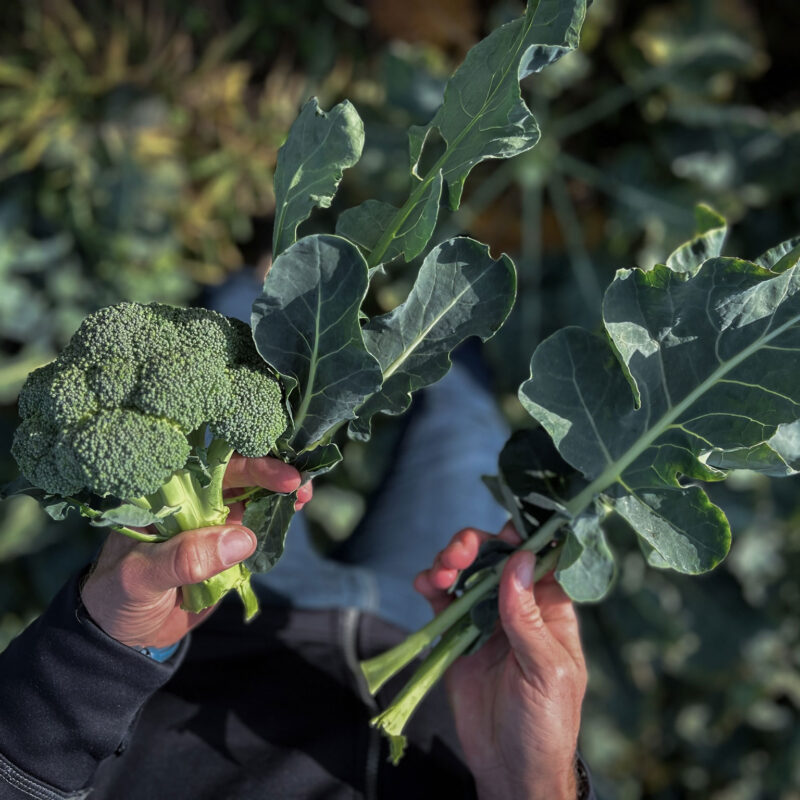Blood & Turnip – Turning Waste into Food
A substantial proportion of the food produced today is lost in the steps from being produced to ending up on store shelves. Perfectly useable raw materials become waste, animal feed, or biogas – just because they look different or due to a lack of demand. The Swedish Environmental Research Institute (IVL) is collaborating with Axfoundation and a wide range of partners to make use of these underutilized resources by upgrading them into tasty, healthy, and sustainable food products. The aim is to contribute to increased resource efficiency and profitability in the Swedish grocery sector.

From peels, leaves, misshapen vegetables, and meat cuts, delicious, safe, and nutritious foods can be created. Product development is underway at Torsåker Farm.
The Issue
Peels, leaves, irregularly shaped vegetables, and meat by-products – these are examples of resources within Swedish primary production and food industry that today end up as animal feed, waste, or biogas. Additionally, significant volumes of vegetables are sorted out before they even reach the store – because they are too big, too small, or deemed difficult to sell for other reasons. The reason for this waste of resources is often low profitability for these types of raw materials. This can be due to a lack of infrastructure and logistics, strict buyer requirements, and consumer scepticism. To achieve Sweden’s interim target “An increased share of food production should reach stores and consumers by 2025“, all actors in the Swedish food chain need to take action.
Our Solution
In the Blood & Turnip project, Axfoundation collaborates with partners to map and assess the potential of raw materials that were previously classified as food waste, biogas, or animal feed. Led by IVL Swedish Environmental Research Institute, the project investigates risks, profitability, and environmental consequences of various underutilized resources in vegetable farming and meat production.
At Torsåker Farm, Axfoundation’s test farm and development center, new food products are developed from raw materials or resources that are deemed safe and environmentally sustainable. The ambition is to contribute to good, safe, and nutritious food for public sector catering, such in schools or senior living facilities.
Almost a third of all food produced globally is wasted or lost in the food supply chain today. This is an enormous waste of resources, which also causes negative environmental impacts and significant climate emissions.
– Elvira Molin, IVL Swedish Environmental Research Institute

Claes Grännsjö, Gastronomic Development Manager at Axfoundation, is preparing carrots for testing different fermentations where carrots make up a larger part of the final product.
Our Work
At Torsåker Farm, Axfoundation’s innovation and development team focuses on creating new, flavorful products from resources that are currently classified as waste, biogas, or animal feed. During product development, great emphasis is placed on the taste and consumer acceptance of the products. Their nutritional value and environmental impact are also carefully considered.
The work is carried out in close collaboration with sensory experts at Ipsos to develop products that appeal to both younger and older consumers.
5 things you didn’t know about food that doesn’t become food
- Every year, 38 kg of food per person is lost before the food even reaches the store shelves.
- Nearly half of the meat by-products from beef and pork ends up as biogas or feed, instead of becoming food. Blood is delicious in pancakes!
- One out of every six carrots is lost after harvest due to being the ‘wrong’ size or being broken.
- When pressing fruits and berries, around 25% becomes press residues, where a significant portion of the nutrients are found.
- To use the entire food is not profitable, partly because consumers are not used to by-products.
Results
- The potential for upgrading food losses was evaluated in terms of environmental and nutritional impacts, combined with an estimated market potential.
- A range of new products made from the sidestreams have been developed and tested: blood, kidney, press residues from apples and carrots. Taste buddies for the different raw materials were identified.
- Of the developed products, three were selected for sensory testing with young people and the elderly. The tests, conducted by Ipsos, led to one product being chosen for production. Two other products showed great potential and undergo further development.
- For the Blood Brownie, one of the products developed within the project, chocolate was identified as a flavor enhancer for blood, while also intensifying the chocolate taste. During the development process, it was also discovered that cattle blood could serve as a substitute for eggs, thanks to its coagulating properties when heated.
Blood has been an exciting ingredient to work with. However, its dark color presents a challenge and has influenced the types of products we chose to explore. It turned out that chocolate and blood are fantastic companions – not just in terms of color but also in flavor.
– Sofia Lundvall, Chef and Meal Coordinator at Torsåker Farm.

Of the developed products, three were selected for sensory testing with young people and the elderly.

The Blood Brownie, consisting of 15% blood, is one of the innovative products Axfoundation developed within the project.
Partners
The project is run by IVL Swedish Environmental Research Institute and is carried out in collaboration with Axfoundation, the association Matsvinnet, Ipsos and the Swedish University of Agricultural Sciences (SLU) / Department of Energy and Technology. Funded by formas.
























































